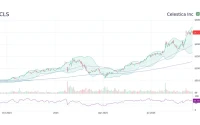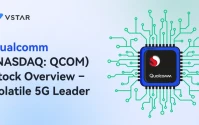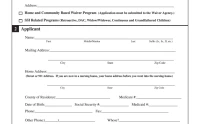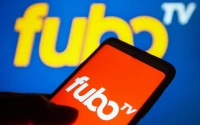It’s National Boss’s Day, a time for signed greeting cards and maybe a team-funded lunch. This year, the occasion comes with a convenient headline from a new GroupTogether survey: Boss’s Day Bombshell: 75% of Employees Actually LIKE Their Boss – New Survey Shatters Stereotypes. This figure, based on a survey of 1,260 U.S. workers, neatly dismantles the age-old stereotype of the tyrannical manager. It suggests a modern workplace built on mutual respect and positive team culture.
On the surface, this is a clean, encouraging number. It paints a picture of harmony. But when you place this single data point into the broader context of the American workplace, it starts to look less like a revelation and more like a distraction. The correlation between "liking" your boss and being a productive, engaged employee is not as direct as one might assume. In fact, the data suggests a significant and growing disconnect between personal affability and systemic performance. Liking your manager is one thing; being effectively led is another entirely.
The Engagement Paradox
Let’s scrutinize the numbers. While three-quarters of employees report positive feelings toward their manager, U.S. employee engagement has simultaneously cratered to a 10-year low. Gallup’s 2025 reporting paints a bleak picture, with overall engagement hovering around 20%—to be more exact, some reports place it between 18% and 21%. This is a stark discrepancy. How can a workforce that overwhelmingly likes its leaders also be so profoundly checked out?
The answer may lie in the managers themselves. The same research ecosystem reveals a leadership class under immense strain. A Kahoot! survey found that global manager engagement has fallen to a mere 27%, and a staggering 46% of managers admit they would trade away their title just for the chance to feel engaged in their work again. Nearly half report feeling undertrained and burned out. The manager, we are told, is the lynchpin; Gallup research famously attributes roughly 70% of a team’s engagement directly to the quality of its manager. If that lynchpin is corroding, the entire structure is compromised.
This presents a paradox. Employees may genuinely like their boss as a person (the survey’s top reasons were “great team culture” and being a “nice person”), while that same boss is too disengaged or burned out to provide the direction, development, and motivation necessary for high performance. It's like having a friendly, well-liked pilot who has lost all interest in actually flying the plane. The passengers might enjoy the captain’s company, but they aren't going anywhere.
I've looked at hundreds of these corporate sentiment filings, and this particular pattern is a classic. A soft, emotionally resonant metric—in this case, "likability"—is amplified, while the harder, more operationally critical data on burnout and disengagement is treated as a separate issue. They are not separate issues. They are two sides of the same coin.

Engineering a Solution
The corporate response to this crisis in human capital is telling. Instead of addressing the root causes of manager burnout—unrealistic expectations, insufficient support, constant organizational churn—the market is flooding with technological fixes. The Human Capital Management (HCM) software market is projected to grow to nearly $58 billion by 2029, with AI-powered HR tools seeing a projected 45% annual growth.
Companies are investing heavily in platforms like Workday (NASDAQ: WDAY), ADP (NASDAQ: ADP), and Paychex (NASDAQ: PAYX), all of which are trading solidly and have optimistic analyst targets. We see the rollout of AI "Recruiting Agents" that cut screening time by 57% and AI assistants that handle payroll and career-planning. The goal is clear: automate the administrative burdens of management to free up leaders for the "human" parts of the job.
But this raises a critical question. Can you truly engineer a solution to a fundamentally human problem? Automating resume screening doesn't train a manager how to have a difficult conversation about performance. A chatbot can’t mentor a junior employee through a crisis of confidence. The investment in HR tech feels less like a solution and more like an attempt to bypass the problem altogether. If you can’t cultivate a generation of engaged leaders, perhaps you can build a system that requires less of them.
This is further complicated by a deep-seated trust issue. An HR Dive report from February 2025 found that 47% of workers feel pressured to be dishonest in engagement surveys (many don’t believe they are truly anonymous). This casts a shadow over all workplace sentiment data, including the rosy 75.9% "likability" figure. If employees are afraid to give honest feedback, then the data we’re using to diagnose the health of our organizations is inherently flawed. We’re flying blind, armed with vanity metrics and AI co-pilots, while the human pilots are running on empty.
A Distinction Without a Difference
Ultimately, the celebration around employees "liking" their bosses feels like a dangerous misreading of the moment. It mistakes pleasantries for performance and personal affinity for genuine leadership. While a positive relationship is certainly better than an adversarial one, it is not a substitute for an engaged, motivated, and effective management layer.
The data points to a quiet crisis: a workforce that is simultaneously pleasant and profoundly disengaged, led by managers who are liked but are themselves burning out. Pouring billions into HR software to streamline processes won't fix a broken culture. On this National Boss’s Day, perhaps the most meaningful gift an organization could give is not a gift card, but a serious, honest look at whether it is supporting its leaders or simply measuring their likability while they slowly burn out.









